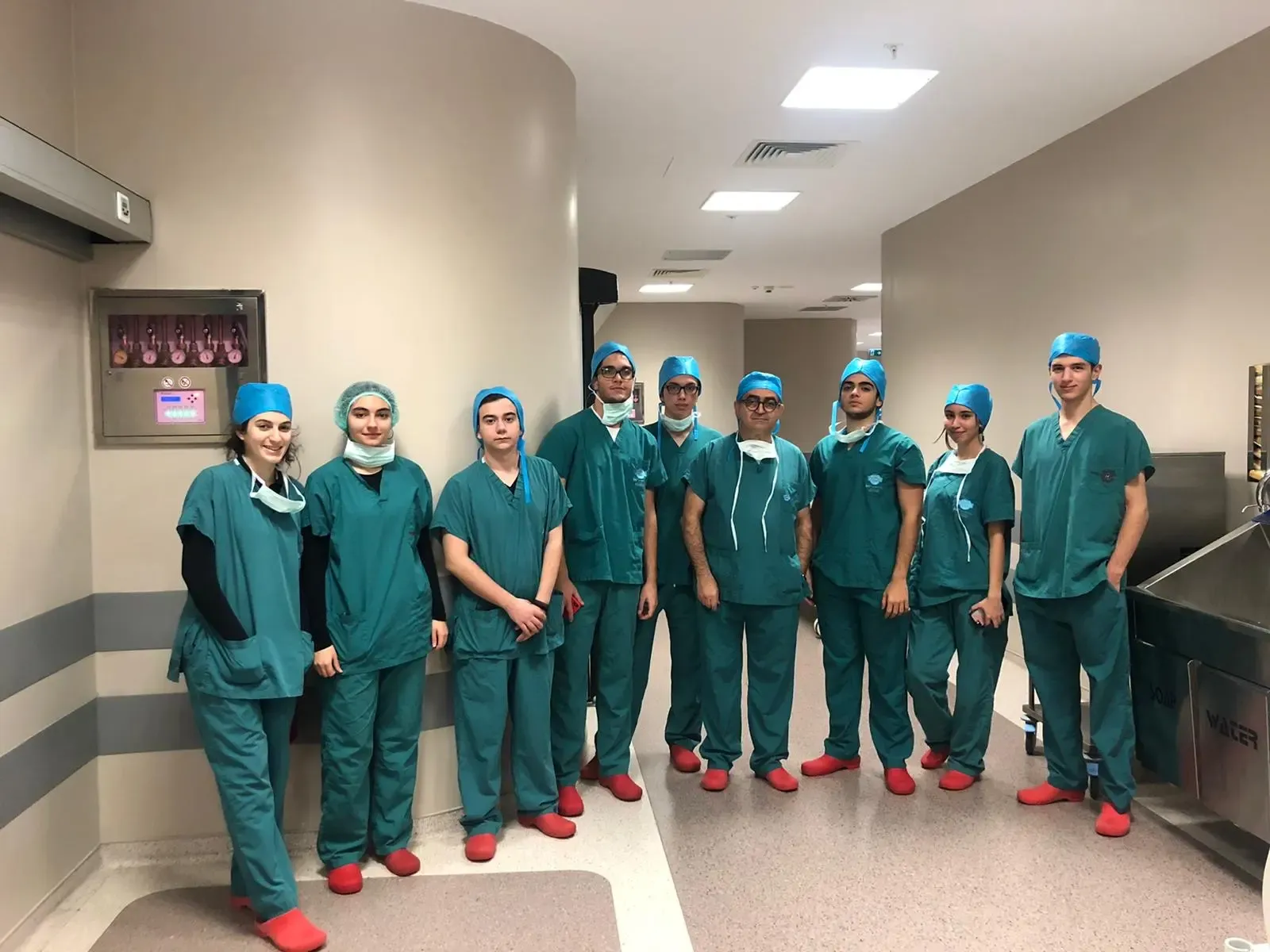
There is no doubt that the specialization of human medicine today is considered one of the highest academic specializations, due to the great tasks that the doctor undertakes.
The importance of workers in the various medical sectors was demonstrated during the recent global health conditions, as doctors were the front-line soldiers in the face of the pandemic!
In addition to what this humanitarian profession grants to its owner a prestigious social position, after refining his experiences, it provides him with a good working environment, with a relatively excellent income, and a life of greater luxury.
For example, many of our students wonder about studying medicine in Turkey for Iraqis, and Turkish universities recognized in Iraq and other Arab and regional countries.
In recent years, Turkey has endeavoured to develop its experience in education and medical rehabilitation; It focused its efforts on building a strong infrastructure of medical faculties and specialized hospitals in various Turkish cities.
As well as providing it with the latest medical equipment and devices, with training and rehabilitation programs in various delicate specialties, to qualify students, doctors, technicians and other workers in the health sectors.
And that goes at the same time of pioneering ambitious plans to support and enhance scientific and medical research activities and to keep abreast of everything new globally with the latest studies and pioneering medical applications.
A doctor studying at a medical school in Turkey can delve into many important practical fields.
After the medical student completes his studies in the specialty, and based on the experience he has during the period of practical training, the qualification he receives in university hospitals, and the years of his experiences that he acquires; He has a wide variety of job opportunities in many sectors, the most important of which are the following:
Studying human medicine in Turkey goes through several stages, as it usually begins with a preparatory year to master a foreign language, such as studying medicine in Turkish, or studying medicine in English in Turkey.
Those who hold official certificates, with high rates of foreign language proficiency, such as the TÖMER certificate for the Turkish language, and the TOEFL certificate for the English language may be excluded from it.
Then medical students usually begin to study the generalities of science in the first year, then the foundations and introductions of each medical specialty in the following years, until the student graduates as a doctor specializing in a deep-rooted medical specialty, Among the most famous medical specialties in Turkey:
The doctor may study more precise specialties after these major specialties, such as the subspecialty in embryology, epidemiology and population medicine, and many other dozens of delicate medical specialties.
The courses for human medicine students in Turkey differ depending on universities, but they generally revolve around a number of theoretical and practical courses.
The number of years of studying human medicine in Turkey is usually 6 years, and it may increase by increasing the preparatory year for language proficiency, as mentioned above, or for precise specialization and more training in public and university hospitals.
The following is a statement of the most important subjects, courses and applications that a human medicine student in Turkey goes through during his university studies.
Where the aforementioned subjects are usually taught during the first three years of studying human medicine in Turkish universities.
Then the focus is on the practical side, training and rehabilitation in the subsequent years, which is called the clinical stage in medicine, that is, in which the practical side prevails over the theoretical side. Among its most important lessons and applications, the medicine specialization in Turkey, which were previously mentioned in a previous paragraph above.
As for the sixth year, it is a full year spent by the modern doctor residing in the hospital, persevering in clinical training for various pathological conditions. With the aim of training the doctor on independence at work and the ability to make decisions. This practical medical training in Turkey is called STAJ.
Each university in Turkey has its own conditions, according to its classification and the degree that it will grant, but in general, Turkish public universities require passing an additional proficiency test, such as the YOS test, the SAT test, or the GMAT.
In addition to having a high school diploma with a rate ranging from 90% to 95%, according to the university
As for studying medicine in Turkish private universities, it does not require a proficiency test, as it is sufficient to have a general secondary certificate with an average of 70% or more.
In all cases, the requirement for foreign language proficiency must be met, by proving that you have passed the TOMER test for the Turkish language, or the TOEFL test for the English language, or undergoing a preparatory year instead.
As we have already explained, studying medicine in Turkey is an advanced study and is globally recognized, as for its negatives, it is limited to the difficulty of studying medicine in Turkey completely free of charge, for students with limited income, except for students accepted in the Turkish scholarship.
Even public universities have annual fees, while the admission requirements are not available to everyone, in terms of the high rates required, abilities and languages tests required, and the share of foreign students from the admission seats.
On the other hand, the tuition fees for studying human medicine in private universities in Turkey are reasonable and competitive when compared to the fees for studying medicine in international universities, even within private universities in the Middle East.
If you register through STUDY GO to study in Turkey, you will receive partial scholarships, high discounts, as well as special student services that you will not find anywhere else.
The following is a table of fees for studying medicine in US dollars in the most important private Turkish universities that we advise you to register in:
|
UNIVERSITY NAME |
FEES OF STUDYING IN TURKISH |
FEES OF STUDYING IN ENGLISH |
|
Aydın |
15000 |
19500 |
|
Bahçeşehir |
– |
25000 |
|
Okan |
19500 |
20500 |
|
Uskudar |
14000 |
15000 |
|
Medipol |
18000 |
23400 |
|
Atilim |
– |
15000 |
|
Maltepe |
10000 |
14000 |
|
Atlas |
15000 |
15000 |
|
Altinbas |
– |
25000 |

I am an SEO expert specializing in increasing website visibility on Google and achieving tangible results. I have over 5 years of experience in website analysis, keyword research, building strong content strategies, and improving the technical structure of websites.
After many years of working on registering thousands of students in Turkish universities, and answering an unlimited number of questions about studying in Turkey, these are the most important questions that concern students
The average salary of a cybersecurity employee in Turkey is around 62,000 TRY per month, and it can reach up to 104,000 TRY per month for experts with more than three years of experience.
The basic admission requirements for Acibadem University in 2025 are a high school diploma with a 90% average for Medicine and 60% for other majors, along with a transcript and a passport.
Ada Kent University is ranked 13th locally and 22,411th globally, according to the official 2025 Ad Scientific Index ranking.
Yes, you can get a 10% cash discount on the tuition fees for the Medicine program, reducing the cost to $19,125 instead of $25,000.
No, the requirements are easy. A high school diploma with a 60% average and a passport are sufficient, and you can apply without a language certificate.

Studying for a Master's degree in Technology is a unique academic experience, as the student receive...

Turkey offers highly qualified educational programs in various disciplines and fields, particularly...

Turkish universities are considered among the most distinguished universities in the study of...

With the increasing interest in urbanization and environmental design, the need for professionals ca...